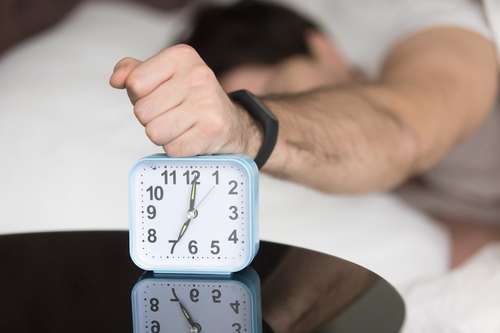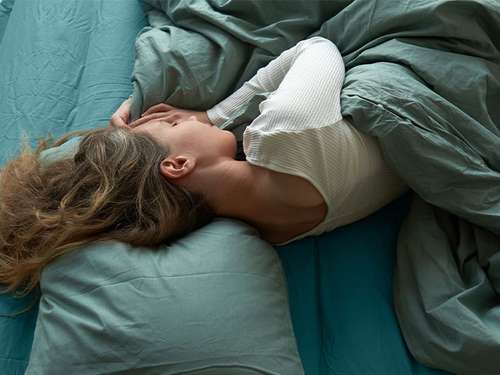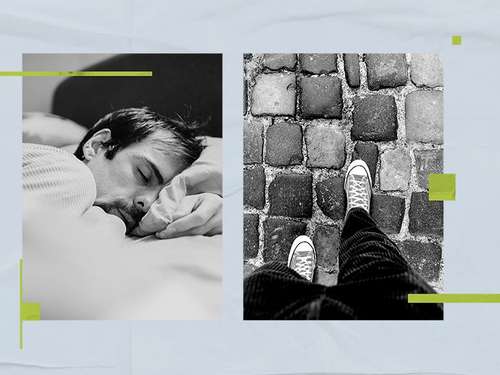Have you ever felt more drained during the weekend even though you planned a few extra hours of sleep? It may not just be your imagination. Many of us notice different stressors and energy shifts during these days off. This phenomenon, sometimes referred to as 'social apnea,' can creep in when we least expect it. It’s like the body's subtle protest against disruptions in our usual rhythm.
People experiencing social apnea notice that symptoms, such as fatigue or even reduced alertness, intensify when the traditional workweek stops. The weekend, which ideally should be a time of relaxation and social engagement, often turns into a battleground for mental health battles. Changes in routine, inconsistent sleep schedules, and an overload of social interaction can all contribute to this condition. Read on to discover why this stressor seems to peak during your days off!
Weekend Routine Disruption
Weekends typically bring a shift from our structured weekday lives, which can often lead to routine disruption. On weekdays, many of us follow a set schedule where sleep, meals, work, and leisure are timed precisely. However, come the weekend, this structure is often tossed out the window in favor of late nights and lazy mornings.
This disruption in our sleep schedule can trigger early signs of social apnea. Our internal clocks—what scientists call the circadian rhythm—get thrown off balance, leading to what some researchers call 'routine disruption.' Suddenly, a normal day of wakefulness can morph into a series of chaotic and fragmented sleep episodes. This is particularly risky if you struggle with stress or mental health issues. When our body loses its natural rhythm, we feel the impact in both physical and emotional ways.
Have you ever noticed how a Saturday afternoon feel like a mismatch between your biological clock and your social engagements? That misalignment sometimes escalates to what insiders refer to as social anxiety. Social interaction later on can feel forced or draining, amplifying those weekend blues. The simple act of shifting our sleep habits can cause a ripple effect, making us less socially engaged and even increasing feelings of loneliness and social withdrawal.
Mental Health and Social Interaction on Weekends
The weekend is often a double-edged sword when it comes to mental health. On one hand, it offers a brief respite from work-related stress; on the other, it exposes vulnerabilities related to weekend anxiety. Many individuals experience heightened stress during weekends because social demands increase or expectations for relaxation spike. Surprisingly, this in itself can worsen symptoms of social apnea.
People find that despite having extra time, integrating the balance between relaxation and social connection becomes challenging. With some friends planning gatherings and family dinner parties, the pressure to engage socially can be overwhelming. Abrupt changes in routine, especially if you’re prone to stress, can lead to physical symptoms like social fatigue and even weekend depression.
It’s funny how our bodies respond to emotional turmoil! When faced with social anxiety, keeping a stable routine is like trying to build a bridge over turbulent waters. Patterns of weekend stress have been shown to affect emotional well-being and even disrupt necessary social connection. The emotional toll not only affects your mental health but also the quality of your social interactions, making you feel isolated even in a crowd.
It really begs the question: How can we better manage our expectations and create a smoother transition between workdays and days off? Breaking the idea that weekends must be a drastic break from routine is key. Rather than packing your schedule with too many social engagements, allow more time for genuine relaxation and personal space.
Strategies for Managing Social Apnea on Weekends
After understanding how social apnea can worsen over weekends, it’s essential to adopt strategies that help mitigate these effects. The first step is maintaining a consistent sleep schedule. Even on weekends, try to keep your sleep and wake times as regular as possible. It might feel like a minor adjustment, but consistency could be your strongest ally in battling routine disruption.
Think of your body’s internal clock as a finely tuned instrument. When you deviate too much from its rhythm, the music starts to sound off-key. This is why experts emphasize the importance of regular sleep patterns. You could even set an alarm for bedtime on weekends, which may seem counterintuitive, but it really helps in combatting weekend depression and social anxiety.
Another practical tip is to plan your social interactions thoughtfully. Do you really need a full day of back-to-back events? Sometimes, less is more when it comes to social engagement. By scheduling time for both social interaction and relaxation, you create a balanced environment that safeguards your mental health. This balance also helps reduce weekend stress and fosters improved social connection.
It’s also worthwhile to introduce some relaxation techniques into your weekend routine. Whether it’s a bit of meditation, a short walk outside, or even reading a good book, carving out that personal time can drastically alleviate social apnea symptoms. These moments of calm can serve as anchors, ensuring your overall emotional well-being remains intact even when the weekend blues try to creep in. The goal is to find that steady balance between social interaction and personal relaxation.
Adjusting Expectations and Embracing the Weekend
Although weekends come with their own set of challenges, they also offer a unique opportunity to reset and recharge. It’s about adjusting your expectations, so the weekend doesn’t become a source of stress or social fatigue. Accept that perfection is unattainable. Sometimes, try to embrace the weekend as a chance to unwind, rather than forcing yourself into a packed schedule.
Perhaps you can start by slowly modifying your sleep routine. Even a half-hour adjustment gradually bridges the gap between the strict weekday schedule and the more relaxed weekend vibe. What if you treated your weekend like a fine-tuned workshop of self-care? Such small adjustments can make social apnea less severe, diminishing the effects of routine disruption.
Striking the right balance means being open to change. Recall a time when you felt overwhelmed by social withdrawal and weekend stress. What if those experiences served as a reminder to prioritize your emotional health? Embracing a more mindful approach can transform your weekends from stressful periods into opportunities for enriched social connection and relaxation.
In conclusion, social apnea on weekends is a reminder that our bodies and minds crave consistency amid the chaos of modern life. Balancing social interaction with adequate rest is not just a luxury—it’s a necessity for maintaining mental health and overall well-being. By adjusting our routines and expectations, we can turn even the most challenging weekends into a harmonious blend of connection and calm. Remember, your well-being is in your hands, and a few mindful changes can pave the way for better, more balanced weekends.




